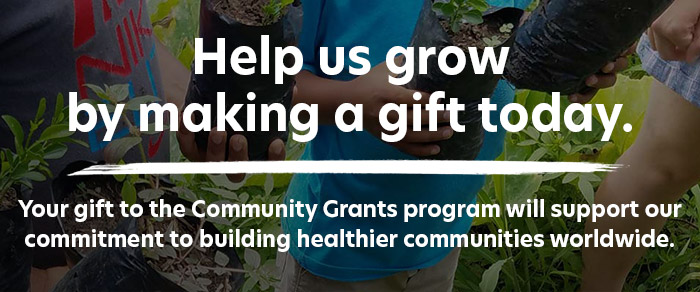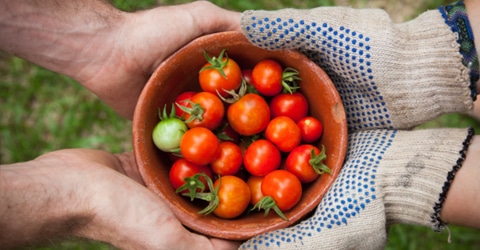
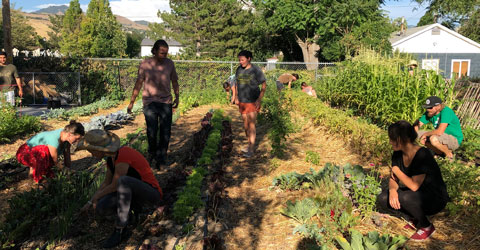
The following is an article from a Community Grant recipient.
My interest in food access began in high school when I saw the documentary film A Place at the Table, which investigates hunger in the US and highlights the connection between hunger and chronic diseases, often called the “double burden of malnutrition.” I’d never heard of food insecurity and had no idea that 23.5 million Americans lack access to fresh fruits and vegetables.[1] The film emphasizes the ubiquity of highly-processed, high-calorie, nutrient-deficient “foods” that are consumed in place of fresh fruits and vegetables. Despite being linked to heart disease, diabetes, obesity, and other health problems, many of American’s calories come from such processed foods.[2]
While the food access concerns were new to me, I was more familiar with the importance of nutrition. My father is a physician with a passion for prevention—a rarity in the field of orthopedics. He loves to quote William Osler’s famous words: “one of the first duties of the physician is to educate the masses not to take medicine.” His nutrition-first approach extended beyond his clinic and into our home, where I was equipped with a basic understanding of nutrition from a young age. Though I’m forever grateful for this early education, as I got older, I recognized what an immense privilege it was to eat healthily, and that didn’t sit right with me. I believe everyone should have the right to choose healthy food.
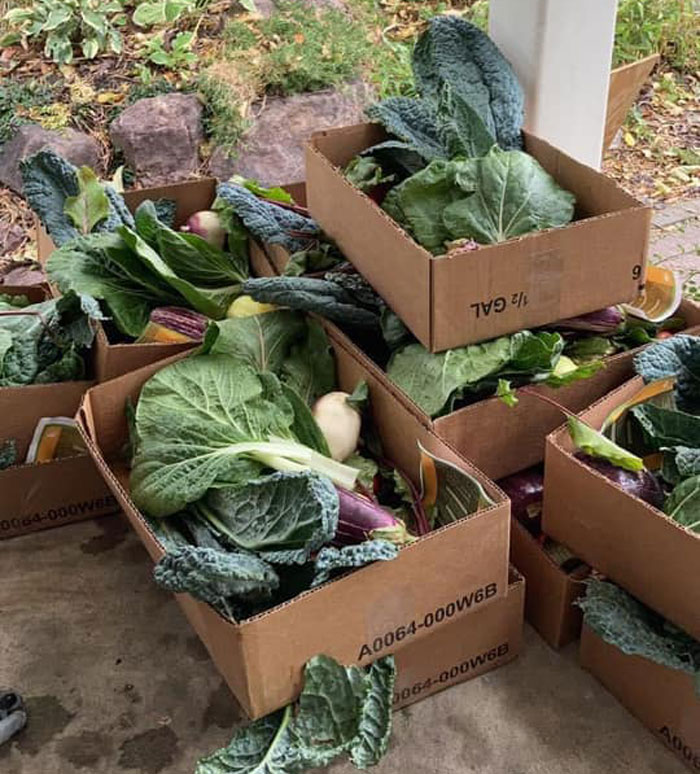
My dad and his partner Dr. Patrick Olson (who had recently earned his Plant-Based Nutrition Certificate from the T. Colin Campbell Center for Nutrition Studies and eCornell) founded Plant Based Utah in 2017. Its mission is to educate Utahns, especially clinicians, about the benefits of whole food, plant-based nutrition. Though we were unsure how much community interest there would be, our first initiative was to host an annual symposium. Dr. Esselstyn and his wife Ann graciously agreed to be our first keynote speakers, along with Cowspiracy and What the Health director/producer Keegan Kuhn. To our amazement, registration for the October event sold out in July.
I believe everyone should have the right to choose healthy food.
Our symposium has continued with great success, and we’ve held a number of community events in the years since. We’ve also launched a membership program and formed lasting partnerships with allied organizations and institutions (including the Sustainability Department of Salt Lake City). 2020 was set to be our biggest year yet—with more events, our first-ever fundraiser, and a plant-based restaurant week—until the pandemic hit.
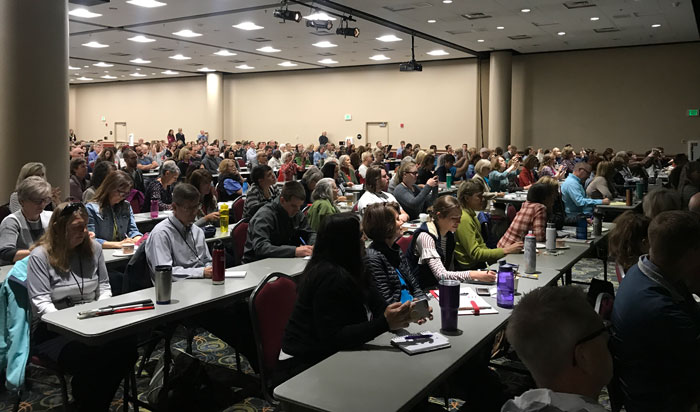
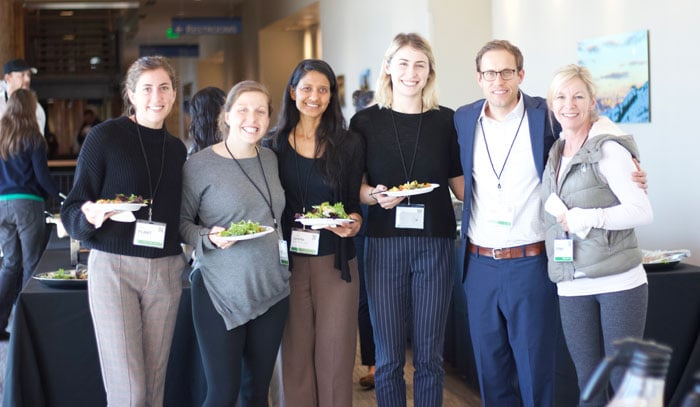
While the COVID-19 tragedy should have been avoided, I’m thankful that it has forced so many to recognize some of our greatest food and health challenges. Fifty-four million Americans are now food insecure (compared to 37 million pre-pandemic[3]). Food insecurity and poor nutrition are associated with chronic lifestyle diseases (as many as six in ten Americans have a chronic lifestyle disease[4]) that increase the risk for COVID complications—exacerbating the already glaring health disparities among vulnerable populations.
To help our at-risk neighbors during the pandemic, Plant Based Utah launched a food relief project in July 2020. With the help of over 200 volunteers, we assembled 1,200 boxes—each packed with enough shelf-stable plant-based foods to feed a family of four for roughly two weeks. We included cross-cultural staples like rice, beans, lentils, flour, and oats, as well as dried onions, dried tomatoes, and a mixture of spices. Finally, boxes were distributed at a local food pantry serving a predominantly Latin American population, a local refugee resettlement organization, and the Islamic Society of Salt Lake.
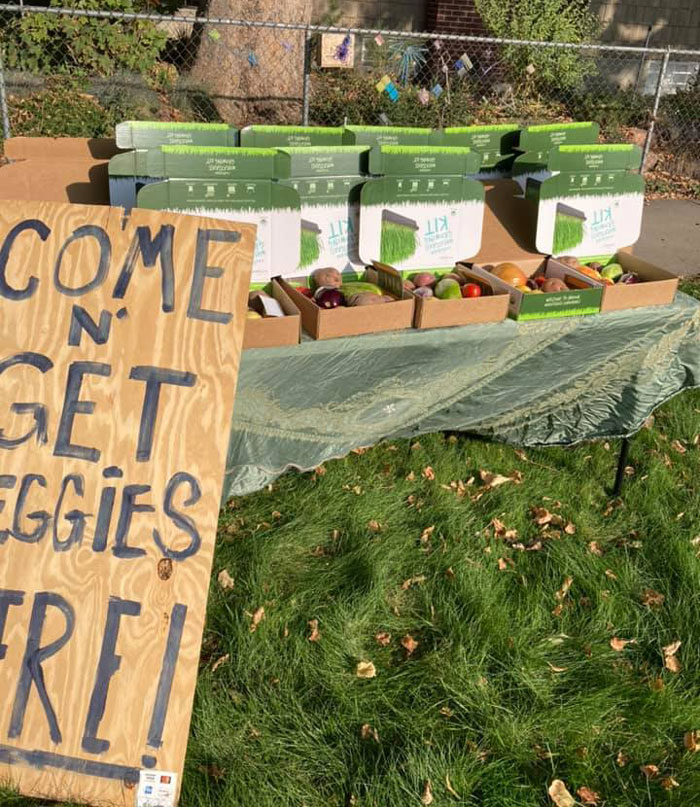
While our project only scratched the surface of food insecurity, the spirit of the community rallying together to support our neighbors has energized us to continue in this direction, and even expand. When I began to think about how we could address food insecurity in a more sustainable, lasting way, I felt that we should focus on food production. In addition to reducing food insecurity and hopefully decreasing the incidence of diet-related diseases, systems for growing healthy food locally also support stronger community connections—connections that we’ll need in order to face the intense challenges before us.
I met Darin Mann, founder of the Village Cooperative, in 2019 and I was immediately inspired by his vision and his understanding of community power. The Village localizes food production by growing and distributing food in a 3-block radius from each of their urban farms, working in a particularly vulnerable neighborhood of Salt Lake City. Darin and his team converted his own yard into their first urban farm in 2020. What stood out to me was their “thirds” model: one-third of harvest is sold through their community supported agriculture (CSA) program, one-third is given to farm volunteers, and one-third is given to neighbors in need at their weekly farm stand.
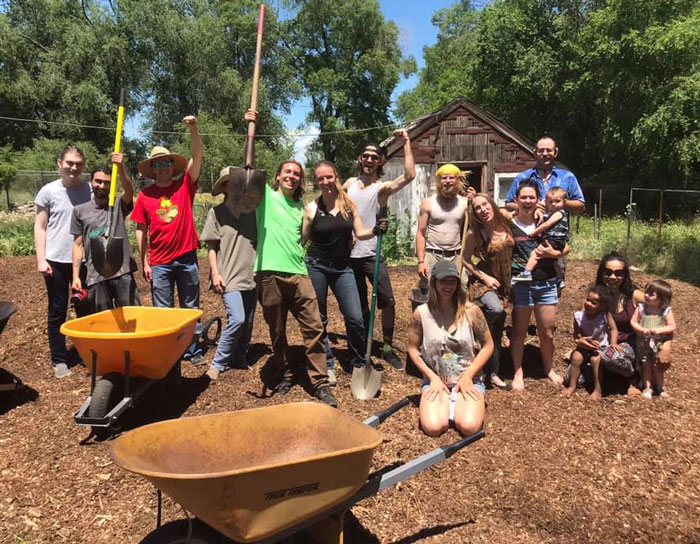
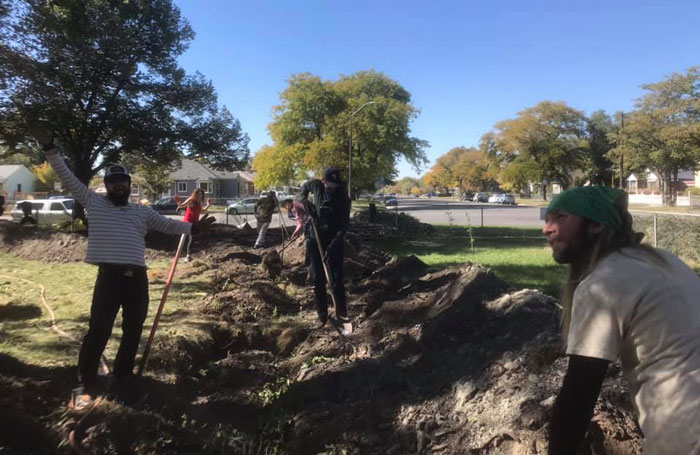
I reached out to Darin last fall to see if we could help create a second backyard farm, and thanks to the support of the CNS grant, we installed that farm in March 2021. We plan to add an educational component, depending on the community’s interests, including cooking classes. Ultimately, we hope this project will inspire the broader community to join our movement, encourage plant-based eating, increase the availability of healthy foods for the most vulnerable, and build a more sustainable, resilient community food system. The choices we make when producing and consuming food have a bigger impact on Americans’ well-being than any other human activity. We have to start acting like it.
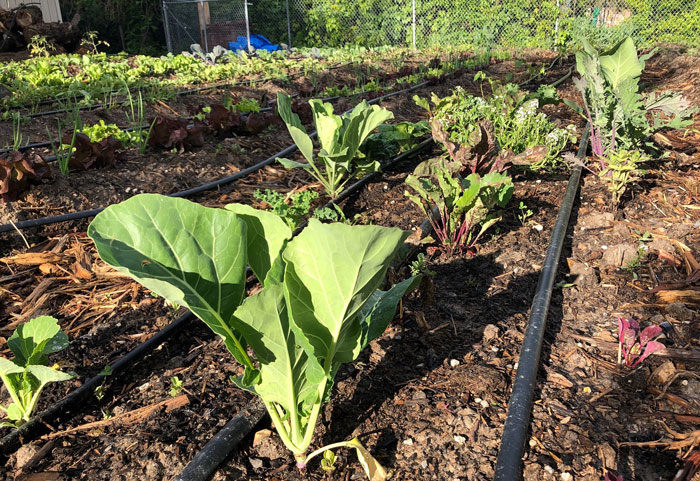
The T. Colin Campbell Center for Nutrition Studies (CNS) is committed to increasing awareness of the extraordinary impact that food has on the health of our bodies, our communities, and our planet. In support of this commitment, CNS has created a Community Grant initiative to empower sustainable food-based initiatives around the world by providing grants to enable innovative start-ups and to propel the growth of existing initiatives. Please consider making a donation to this great cause. 100% of your donation will go to support initiatives like the one you just read about in this article.
Learn more about our Community Grant program:
https://nutritionstudies.org/community-leads-service-initiative
References
- “Food Deserts in America (Infographic).” Food Deserts in America, School of Social Work, Tulane University, 10 May 2018, https://socialwork.tulane.edu/blog/food-deserts-in-america
- “America’s Packaged Food Supply Is Ultra-Processed.” ScienceDaily, Northwestern University, 25 July 2019, www.sciencedaily.com/releases/2019/07/190725092534.htm.
- Sethi, Simran. “Hunger and Food Insecurity Are Not the Same. Here’s Why That Matters-and What They Mean.” The Counter, 21 Dec. 2020, https://thecounter.org/hunger-food-insecurity-covid-19-feeding-america/
- “Chronic Diseases in America.” Centers for Disease Control and Prevention, www.cdc.gov/chronicdisease/resources/infographic/chronic-diseases.htm
Copyright 2025 Center for Nutrition Studies. All rights reserved.
Deepen Your Knowledge With Our
Plant-Based Nutrition
Certificate
Plant-Based Nutrition Certificate
- 23,000+ students
- 100% online, learn at your own pace
- No prerequisites
- Continuing education credits


